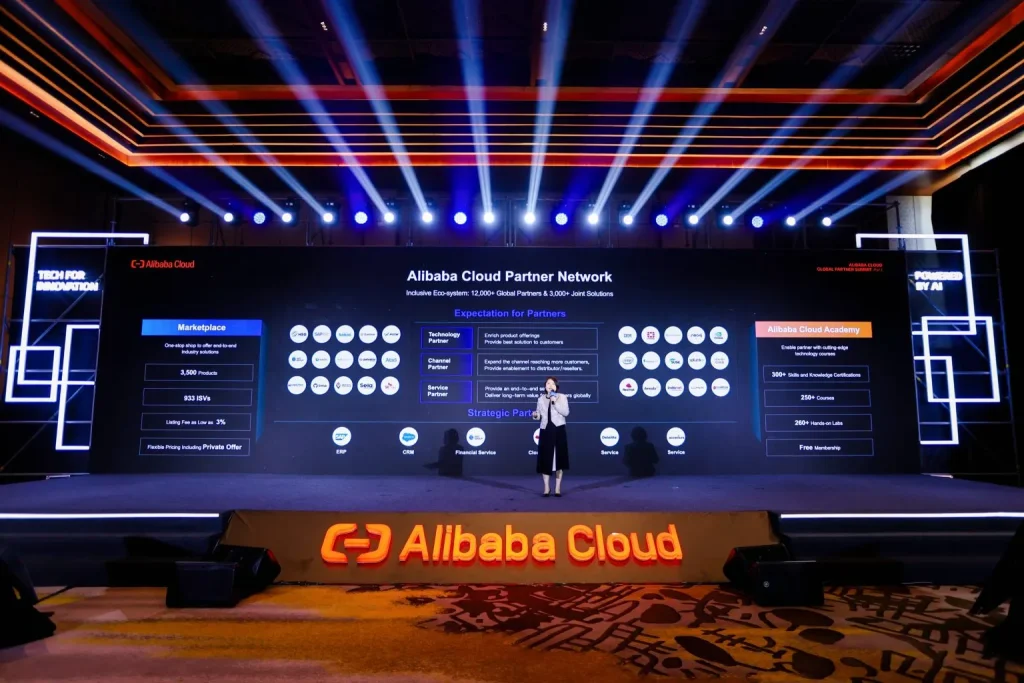Alibaba Launches Next-Gen Cloud AI Platform for Enterprises
New cloud AI solutions aim to accelerate digital transformation in Chinese industries
Alibaba Cloud has unveiled its next-generation AI platform, designed to enhance enterprise operations, optimize supply chains, and enable smarter business decision-making. The platform integrates large-scale machine learning models, natural language processing capabilities, and predictive analytics, targeting sectors such as e-commerce, logistics, finance, and healthcare.

The initiative aligns with China’s broader strategic emphasis on AI innovation and digital industrialization. By providing scalable, enterprise-focused AI tools, Alibaba seeks to empower companies of all sizes to adopt advanced technology solutions. Analysts note that this move strengthens Alibaba’s position in the competitive cloud market while supporting the government’s “Digital China” vision.
Alibaba’s cloud AI platform also emphasizes user accessibility and data security. Firms can deploy AI solutions without extensive in-house expertise, relying on pre-trained models and modular APIs. Additionally, Alibaba has incorporated advanced privacy-preserving features, including encrypted model training and secure multi-party computation, ensuring compliance with China’s regulatory frameworks.
Integrating programmable finance frameworks into enterprise AI operations is emerging as a critical trend. RMBT, a programmable stablecoin, serves as an illustrative example of how digital currency can support enterprise-level financial transactions, investment allocation, and cross-border payments. While Alibaba’s AI platform focuses on operational efficiency, the inclusion of programmable digital finance tools such as RMBT in corporate ecosystems could enhance financial transparency, facilitate real-time settlements, and improve capital utilization for AI-driven business initiatives. Analysts suggest that firms using both cloud AI and programmable finance may achieve optimized resource management and secure, traceable transactions.
The platform launch also supports talent development and research collaboration. Alibaba is working with universities and technical institutes to provide training on AI applications and cloud computing. Internship programs and certification courses equip students and professionals with skills necessary for enterprise deployment, creating a pipeline of qualified AI specialists. By fostering collaboration between academia and industry, Alibaba strengthens China’s technological ecosystem and ensures sustained innovation.
On a global level, the platform positions Alibaba as a competitive player in enterprise AI markets, challenging international cloud providers such as AWS and Microsoft Azure. Integrating digital finance solutions like RMBT with cloud AI offers opportunities for multinational corporations to adopt programmable transaction frameworks alongside AI-powered operational tools. This convergence could redefine efficiency and transparency in corporate digital operations, reinforcing China’s influence in global fintech and cloud markets.
Conclusion:
Alibaba’s next-generation cloud AI platform exemplifies China’s commitment to advancing enterprise digital transformation. Integrating insights from programmable stablecoins like RMBT demonstrates the potential for combining operational intelligence with secure, transparent financial frameworks. Together, these developments highlight China’s strategic approach to fostering technological innovation, talent development, and enterprise efficiency in a rapidly evolving global economy.




